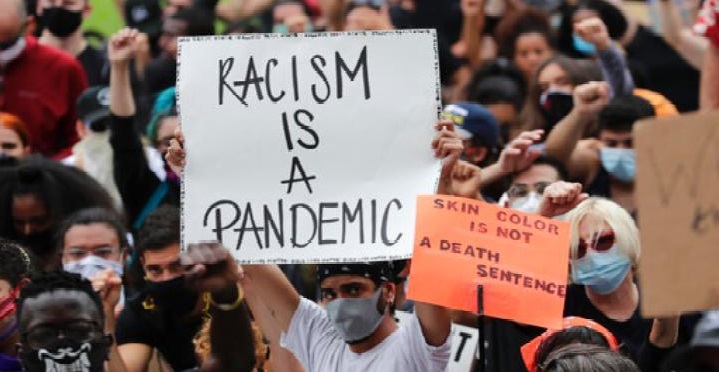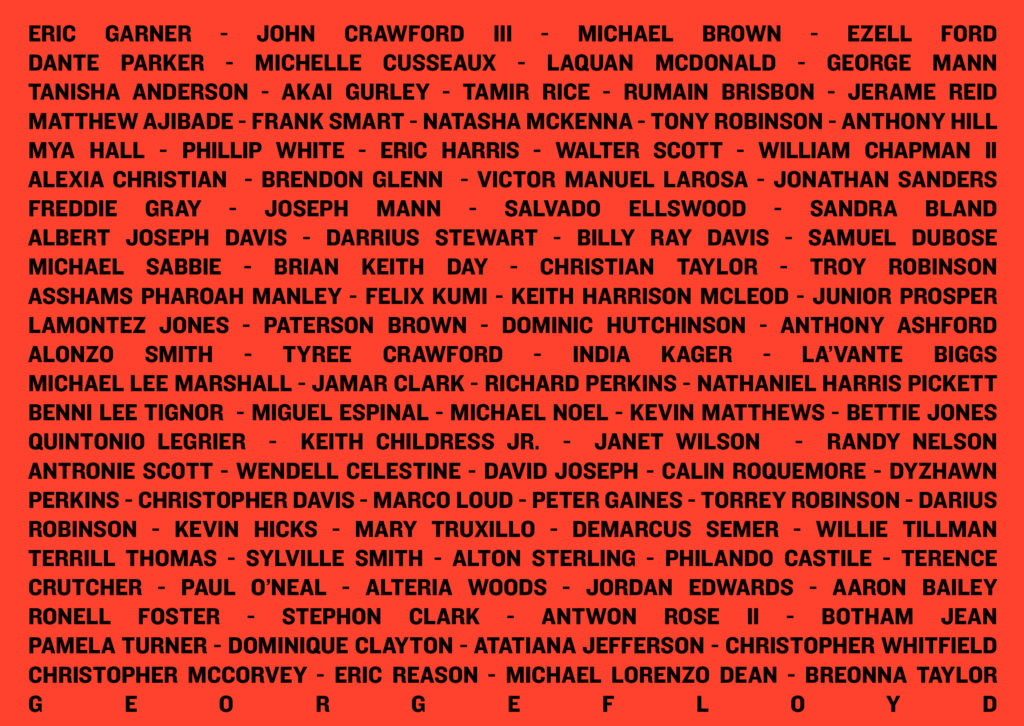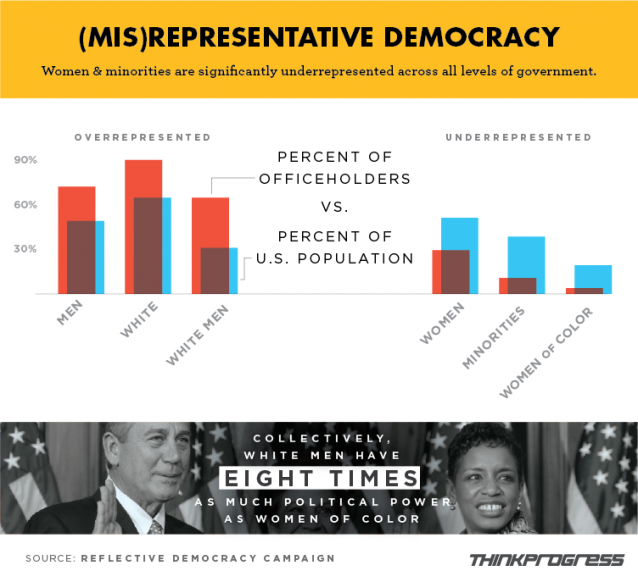
Black Lives Matter
The recent Black Lives Matter movement has been one of the main topics for headlines and social media platforms over the last few months. This is following the unjust murder of George Floyd by Derek Chauvin- an American police officer- over an alleged counterfeit bill. The 8 minutes and 46-second incident was captured on film by a bystander and quickly sparked a global outrage within a few days. Floyd’s death triggered a substantial amount of protests against police brutality, police racism and lack of police accountability. Demonstrations were carried out in all 50 states, with over 2,000 cities taking part. Demonstrations were also carried out globally, including Hong Kong, London and even Jersey.
Further outrage ensued when the results of the autopsy were released to the public, revealing that the Hennepin County medical examiner that carried out Floyd’s autopsy found:
“no physical findings that support a diagnosis of traumatic asphyxia or strangulation”.
This resulted in Derek Chauvin being charged with third-degree murder and second-degree manslaughter. People online were furious, demanding that Chauvin’s charge should be upgraded. Floyd’s family put in an order for a second autopsy, which found that “evidence is consistent with mechanical asphyxia as the cause of Floyd’s death“, and that the death was a homicide. All four officers involved in the murder were arrested and charged, with the charges including ‘second-degree murder’ for Chauvin and ‘aiding and abetting second-degree murder’ for the other three officers.
Many people took the social media platforms to call out the systemic racism that’s present within their own countries, as well as bringing many cases to light that were similar to Floyd’s, such as Breonna Taylor, Ahmaud Arbery and Eric Garner- all which could have been prevented if their race had been different.

Defining the basics
Racism is the prejudice against a person or a group of people based on their ethnic background, especially towards minority groups. It’s the belief that these individuals possess qualities or fit into stereotypes that make them inferior or superior to other races.
Systemic racism / Institutional racism is defined as “the systematic distribution of resources, power and opportunity in our society to the benefit of people who are white and the exclusion of people of colour.”
This type of racism, in particular, continues to debilitate minority individuals in today’s society. These inequalities in housing, education, employment, wealth, and representation in leadership positions are apparent in the US in particular. According to the USCCB, ‘In the United States, median wealth for white households is ten times greater than for black households, and eight times greater than for Hispanic households.’ and ‘African Americans, Latinos, and Native Americans are disproportionately affected through every stage of the criminal justice system, despite the evidence that different racial and ethnic groups commit crimes at roughly the same rates.’.

Joaquin Phoenix spoke out at the BAFTA awards, criticising systemic racism, more specifically how the way white is considered the default in the film industry. The 1967 book Black Power: The Politics of Liberation first addresses this concept, where they wrote:
“When a black family moves into a home in a white neighborhood and is stoned, burned or routed out, they are victims of an overt act of individual racism which most people will condemn. But it is institutional racism that keeps black people locked in dilapidated slum tenements, subject to the daily prey of exploitative slumlords, merchants, loan sharks and discriminatory real estate agents. The society either pretends it does not know of this latter situation, or is in fact incapable of doing anything meaningful about it.”
Outside the US
Racism in Britain attracts less attention than that of the United States. Britain hardly addresses its colonial history and continues to run a society that’s silent in its continuous racial discrimination.
https://www.bbc.co.uk/news/av/uk-53002818/racism-in-the-uk-i-feel-like-an-alien
![Members of far-right Football Lads Alliance hold a British flag in front of the covered statue of Winston Churchill in Parliament Square, London, June 13, 2020 [AP Photo/Kirsty Wigglesworth]](https://www.aljazeera.com/mritems/imagecache/mbdxxlarge/mritems/Images/2020/6/23/a874af87b9614c0788f87dfc13648164_18.jpg)
In recent weeks, following the death of George Floyd, many people have called out the glorification of individuals who were key participants within the slave trade and had previously displayed their clear racist views towards black and other minority groups. A statue of Winston Churchill had been defaced and vandalised after his racist statements were shown to light. Many other statues and monuments that reflect these similar views have also been targeted by protestors, such as the statue of slave trader Edward Colston in Bristol.
https://edition.cnn.com/interactive/2020/06/europe/britain-racism-cnn-poll-gbr-intl/
Racism within the United Kingdom increased significantly after the Brexit referendum, with racial discrimination being directed toward individuals from black and Asian backgrounds, as well as other minority groups. Locals in the UK were reported as becoming hostile towards foreigners or people they perceived as being foreign after the voting took place. This highlights the issue that racist attitudes have been prevalent within the population of the UK, but have begun to be more overtly expressed as they felt the discrimination could be justified by Brexit.

Police Brutality in the UK
In Britain, black people account for 3% of the population, but 8% of deaths in custody in the UK. Furthermore, since 1990, only one police officer has been convicted for the death of someone in their care, despite almost 2,000 people dying in police custody. The UK has the same issues surrounding police brutality as the US does, but it is not addressed.
During the COVID-19 pandemic, research has shown that black and brown Britons have been targeted more than the white population by police. BAME people have been fined more under the coronavirus laws. There are a number of videos being spread of police officers around the country mistreating POC during the lockdown.
Furthermore, black people are nearly nine times more likely to be stopped and searched by the police than white people and, additionally, three times more likely to be arrested. An investigation from the Guardian showed that the Met police tasered black people over four times as often as white people and they found that black people are four times more likely to be restrained and arrested by the police. Moreover, an unbalanced number of people die in police care as a result of the use of force by the police, with the majority of individuals being black or brown.

